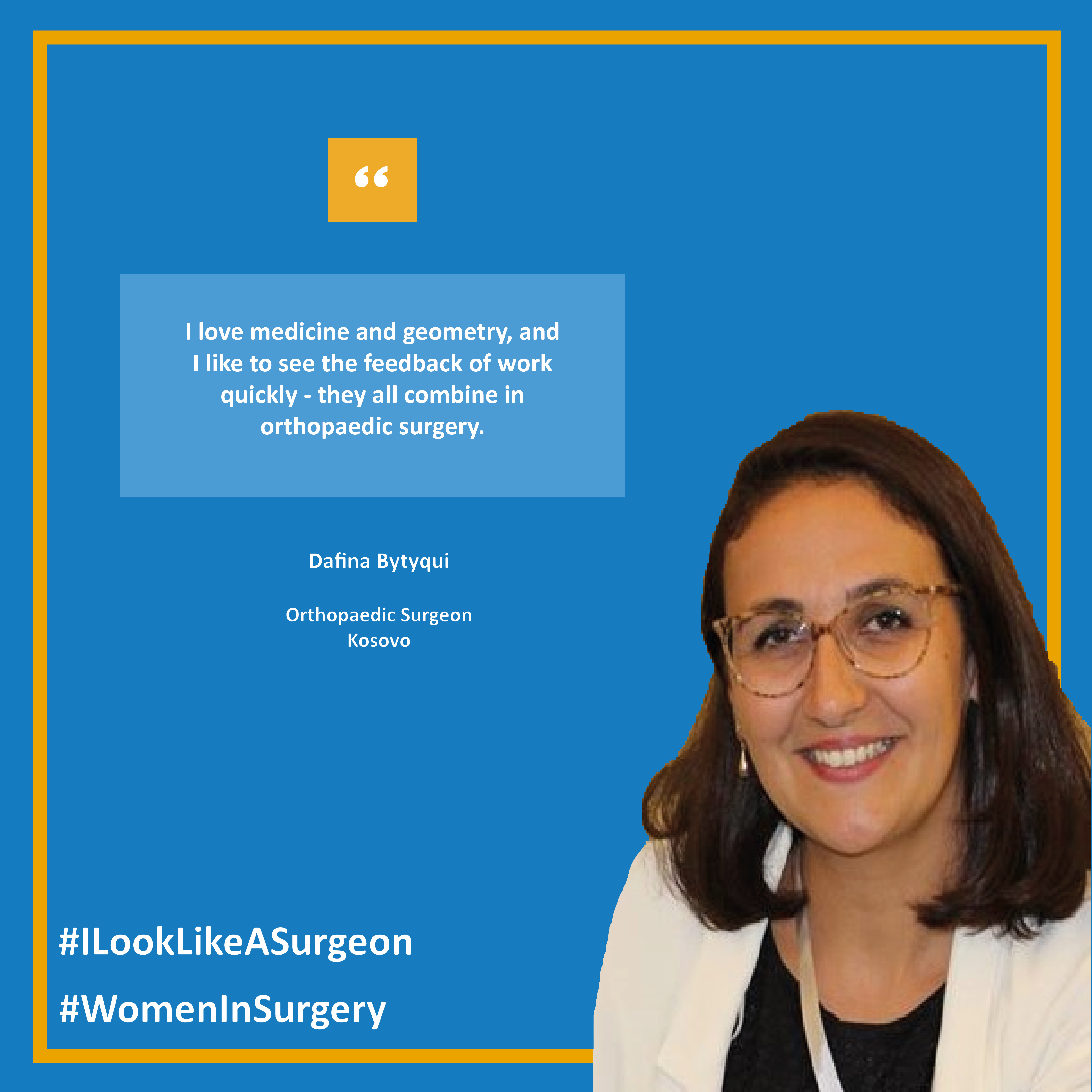Women in Surgery – Kosovo
Kosovo is a small country of approximately 2 million inhabitants, located in the centre of the Balkan peninsula in Europe. It is a new country with a difficult recent history, experiencing war during 1998-99 and only recently gaining independence in 2008.
The orthopaedic surgery department was established in the 1970s with only 4 native orthopaedic surgeons. Currently, there are 78 orthopaedic surgeons and 12 trainees. There are only 3 (3.8%) female orthopaedic surgeons and no female trainees at the moment. We three all work at the same clinic, in different departments.
The small number of females in orthopaedics, I believe, has arisen from the stereotype that one needs physical strength to “work with bones”. The first female orthopaedic surgeon reports being prejudged and often told to change her choice of training to dermatology! However, with time, these stereotypes are vanishing, and the new generation has less bias against women.
Currently two of these three female orthopaedic surgeons have leading positions in the Orthopaedic and Traumatology Society, vice-president and secretary of the society. There is not any fixed quota for training female surgeons but when candidates are equal, the female candidate has priority. Regarding other fields of surgery, there are female surgeons in every department except neurosurgery, where there is no female surgeon or trainee at present.

In my opinion, the key for successful female representation in surgery is good mentor support, especially male mentors, and lack of bias from peers. An important role is also played by the family and other supports for surgeons with children. Establishing institutional and social support for widespread paternal leave in a child’s first year is an important priority. I would like to conclude this contribution with the hope that the future shall usher in strong female representation in orthopaedic surgery and gender equity shall become a moot point.
